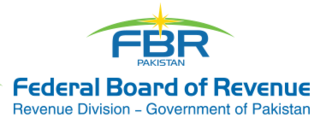
In the civil service of the United Kingdom, Her Majesty’s Exchequer, or just the Exchequer, is the accounting process of central government and the government's current account in the Consolidated Fund. It can be found used in various financial documents including the latest departmental and agency annual accounts.

The Scottish Government is the devolved government of Scotland. It was formed in 1999 as the Scottish Executive following the 1997 referendum on Scottish devolution.

The Welsh Government is the devolved government of Wales. The government consists of ministers, who attend cabinet meetings, and deputy ministers who do not, and also of a counsel general. It is led by the first minister, usually the leader of the largest party in the Senedd, who selects ministers and deputy ministers with the approval of the Senedd. The government is responsible for tabling policy in devolved areas for consideration by the Senedd and implementing policy that has been approved by it.

A finance minister is an executive or cabinet position in charge of one or more of government finances, economic policy and financial regulation.

The Institute for Fiscal Studies (IFS) is an economic research institute based in London, United Kingdom, which specialises in UK taxation and public policy. It produces both academic and policy-related findings.

The National Audit Office (NAO) is an independent Parliamentary body in the United Kingdom which is responsible for auditing central government departments, government agencies and non-departmental public bodies. The NAO also carries out value for money (VFM) audits into the administration of public policy.

The Federal Ministry of Finance, abbreviated BMF, is the cabinet-level finance ministry of Germany, with its seat at the Detlev-Rohwedder-Haus in Berlin and a secondary office in Bonn. The current Federal Minister of Finance is Olaf Scholz (SPD).
An Australian federal budget is a document that sets out the estimated revenues and expenditures of the Australian Treasury in the following financial year, proposed conduct of Australian government operations in that period, and its fiscal policy for the forward years. Budgets are called by the year in which they are presented to Parliament and relate to a financial year that commences on the following 1 July and ends on 30 June of the following year, so that the 2020 budget brought down in May 2020 relates to the 2020/21 financial year.

The Federal Board of Revenue (FBR), formerly known as Central Board of Revenue (CBR), is a federal law enforcement agency of Pakistan that investigates tax crimes, suspicious accumulation of wealth and money-laundering. FBR operates through tax inspectors that keep tax evaders under surveillance and perform special tasks for FBR Headquarters. FBR has also inducted new blood, new strength of inspectors through FPSC in 2016 whom FBR intends to promote soon or empower with assessment powers because of their competence. FBR performs role of collection of taxation in the country from all individuals and businesses.

The Ministry of Finance is the Dutch Ministry responsible for economic policy, monetary policy, fiscal policy, tax policy, incomes policy, financial regulation, the government budget and the financial market. The Ministry was created in 1798 as the Department of Finance of the Batavian Republic. It became the Ministry of Finance in 1876. The Minister of Finance is the head of the Ministry and a member of the Cabinet of the Netherlands. The current Minister is Wopke Hoekstra.

The Ministry of Treasury and Finance is a government ministry office of the Republic of Turkey, responsible for finance and tax affairs in Turkey. The current minister is Lütfi Elvan since 2020.

The Exchequer Secretary to the Treasury is a junior ministerial post in the British Treasury, ranked below the First Lord of the Treasury, the Chancellor of the Exchequer, the Chief Secretary to the Treasury, the Paymaster General and the Financial Secretary to the Treasury, and alongside the Economic Secretary to the Treasury. It ranks at Parliamentary Secretary level and is not a Cabinet office. Unlike the other posts of Secretary to the Treasury, it is only used occasionally, normally when the post of Paymaster General is allocated to a minister outside the Treasury.

The work of the Scottish Government is carried out by Directorates, each headed by a Director. The Directorates are grouped into a number of Directorates-General families, each headed by a Director-General. However, the individual Directorates are the building blocks of the system. The Directorates are further broken down into "Divisions" and then by teams. Divisions usually consist of 25-50 people. There is no direct correspondence between the political responsibilities of the Ministers in the Scottish Government and the Directorates, although in some cases there is considerable overlap. The Directorates are also responsible for a number of government agencies and non-departmental public bodies. Some government work is also carried out by Executive Agencies such as Transport Scotland, who sit outside the Directorates structure, but are also staffed by civil servants

Full fiscal autonomy (FFA) – also known as devolution max, devo-max, or fiscal federalism – is a particular form of far-reaching devolution proposed for Scotland. The term has come to describe a constitutional arrangement in which instead of receiving a block grant from the UK Exchequer as at present, the Scottish Parliament would receive all taxation levied in Scotland; it would be responsible for most spending in Scotland but make payments to the UK government to cover Scotland's share of the cost of providing certain UK-wide services, including at least defence and the conduct of foreign relations. Scottish fiscal autonomy – stopping short of full political independence – is usually promoted by advocates of a federal constitution for the United Kingdom.

The Office for Budget Responsibility (OBR) is a non-departmental public body funded by the UK Treasury, that the UK government established to provide independent economic forecasts and independent analysis of the public finances. It was formally created in May 2010 following the general election and was placed on a statutory footing by the Budget Responsibility and National Audit Act 2011. It is one of a growing number of official independent fiscal watchdogs around the world.
Government Expenditure and Revenue Scotland (GERS) is an annual estimate of the Scottish economy as part of the United Kingdom. It was first published in 1992, and yearly since 1995, with the exceptions of 2007 where there was no report due to a methodology review, and 2016 where there were two annual reports due to an acceleration of publishing timescale.

Central government spending in the United Kingdom, also called public expenditure, is the responsibility of the UK government, the Scottish Government, the Welsh Government and the Northern Ireland Executive. In the budget for financial year 2019–20, proposed total government spending was £842 billion.

The Budget of Her Majesty's Government is an annual budget set by HM Treasury for the following financial year, with the revenues to be gathered by HM Revenue and Customs and the expenditures of the public sector, in compliance with government policy. The budget is one of two statements given by the Chancellor of the Exchequer, with the Spring Statement being given the following year.

The Ministry of Finance is an Indonesian government ministry responsible for the nation's finance and state assets. The Finance Minister is responsible to the President. The ministry's motto is Nagara Dana Rakça, which means "guardian of state finance".

The Social Security Directorate is a directorate of the Scottish Government responsible for social security policy in Scotland. The directorate ensures the smooth and secure transition of benefits that are to be devolved to the Scottish Parliament, amounting to £2.8 billion.














